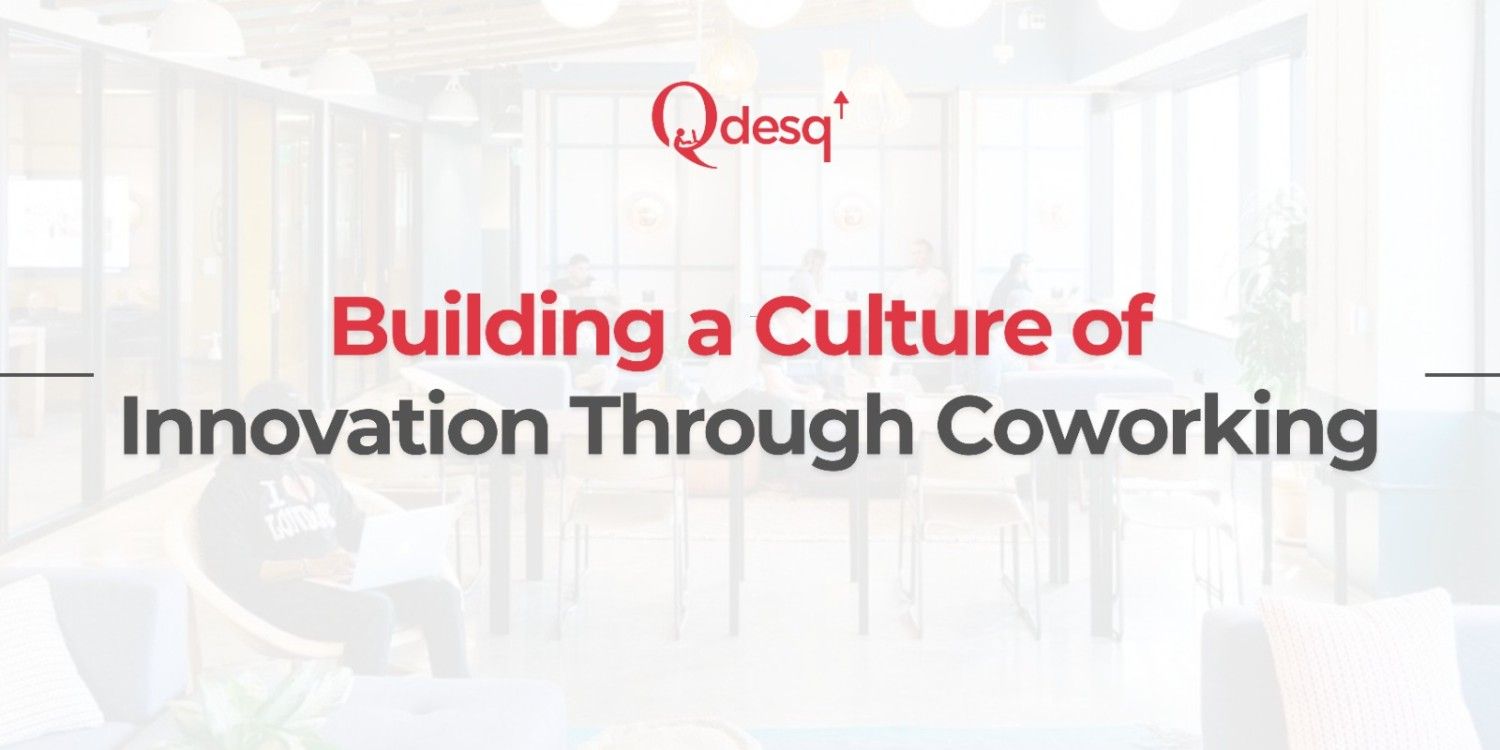The traditional office setup—characterised by fixed cubicles, long-term leases, and rigid hierarchies—is rapidly becoming a relic of the past. Coworking spaces have emerged in their place, offering flexibility, community, and a dynamic environment that fosters innovation.
India’s startup ecosystem, boasting over 70,000 enterprises, increasingly embraces coworking spaces. These spaces provide more than just a desk and Wi-Fi; they offer a collaborative atmosphere where ideas flourish and innovation thrives. With the rise of digital nomads and remote work culture, coworking spaces in cities like Bengaluru, Mumbai, and Delhi are becoming the go-to choice for entrepreneurs seeking growth and creativity.
What Defines a Culture of Innovation?
A culture of innovation encourages creativity, experimentation, and continuous improvement and is integral to the organisation’s ethos. It’s about fostering a mindset that challenges the status quo, embraces new ideas, and adapts swiftly to change.
In coworking spaces, this culture is naturally cultivated. The diverse mix of professionals—from tech startups to creative freelancers—creates a melting pot of ideas and perspectives. Regular workshops, networking events, and collaborative projects are commonplace, providing ample opportunities for knowledge sharing and innovation. Moreover, the flexible nature of coworking spaces allows for rapid prototyping and iteration, essential components of an innovative culture.
The Role of Coworking Spaces in Fostering Innovation
Bringing Different People Together
Coworking spaces host people from many fields—freelancers, startups, creatives, and more. When such a mix of people work in the same place, they naturally share ideas and develop new solutions. This kind of teamwork sparks creativity that might not happen in a regular office.
Building a Community of Innovators
These spaces attract people who are eager to grow and try new things. Being around others with the same drive creates a positive energy that pushes everyone to think creatively and develop fresh ideas.
Sharing Knowledge and Skills
Coworking spaces often hold workshops, talks, and networking events. These give members chances to learn new things, stay updated with trends, and get advice from others. Learning from peers helps people improve their work and try new approaches.
Providing Tools and Resources
Many coworking spaces offer fast internet, meeting rooms, and equipment to help build or test ideas. These resources make it easier and cheaper for startups and freelancers to experiment and grow their projects.
Making It Easier to Take Risks
Traditional offices can be expensive and rigid, holding people back from trying new ideas. Coworking spaces offer flexible plans and affordable setups, so people feel freer to take chances and innovate without worrying about considerable costs.
Creating Networking Opportunities
Regular interaction with others—whether fellow workers, mentors, or investors—opens doors to partnerships, advice, or funding. These connections help turn good ideas into successful businesses.
Encouraging Flexibility and Quick Thinking
The fast-changing environment of coworking spaces teaches members to be adaptable and open to change. This helps teams stay creative by trying new methods and improving ideas quickly.
The Future of Innovation in Coworking Spaces in India
As we look ahead, coworking spaces are evolving beyond traditional shared offices to become dynamic ecosystems that foster innovation. Here’s how:
A. Integration of Advanced Technologies
- AI-Driven Workspace Management: Artificial Intelligence optimises workspace utilisation, predicts maintenance needs, and personalises user experiences. Intelligent systems can adjust lighting and temperature and suggest optimal workspaces based on individual preferences and past behaviours.
- Internet of Things (IoT) Connectivity: IoT-enabled devices enhance connectivity within coworking spaces. Sensors monitor air quality, occupancy levels, and equipment usage, providing real-time data that helps maintain a comfortable and efficient environment.
- Virtual Reality (VR) and Augmented Reality (AR): These technologies are being explored for immersive meetings, virtual tours of coworking spaces, and interactive design planning, offering new dimensions to collaboration and workspace design.
B. Emphasis on Sustainability
- Eco-Friendly Building Materials: Coworking spaces are increasingly constructed using sustainable materials, such as recycled steel, bamboo, and low-emission paints, reducing their environmental footprint.
- Energy-Efficient Systems: Adopting LED lighting, energy-efficient HVAC systems, and smart meters helps minimise energy consumption and operational costs.
- Waste Reduction Initiatives: Implementing zero-waste policies, composting organic waste, and promoting recycling programs contribute to a more sustainable workspace.
C. Focus on Employee Well-being
- Wellness Programs: Many coworking spaces offer yoga sessions, meditation rooms, and fitness centres to promote physical and mental health among members.
- Ergonomic Workstations: Providing adjustable desks, ergonomic chairs, and accessories to ensure comfort and reduce the risk of strain or injury.
- Healthy Food Options: On-site cafeterias offer nutritious meals and snacks, catering to the health-conscious workforce.
D. Decentralisation and Expansion into Tier-2 and Tier-3 Cities
- Accessibility to Remote Areas: Coworking spaces are expanding into smaller cities like Indore, Surat, and Lucknow, providing entrepreneurs and freelancers access to professional work environments without the need to relocate to major metros.
- Support for Local Economies: This expansion stimulates local economies by creating job opportunities and fostering entrepreneurial activities in underserved regions.
E. Customisation and Hyper-Zoning
- Tailored Work Environments: Coworking spaces are designed areas that cater to specific needs, such as quiet zones for focused work, collaborative hubs for team projects, and social lounges for networking.
- Flexible Membership Plans: Offering various membership options, from hot desks to private offices, allowing businesses to scale their workspace requirements as needed.
F. Strategic Partnerships and Community Building
- Collaborations with Educational Institutions: Partnering with universities and research centres to provide students and researchers access to coworking spaces, fostering innovation and knowledge exchange.
- Networking Events and Workshops: Organising regular events, such as hackathons, pitch sessions, and skill-building workshops, to encourage collaboration and continuous learning among members.
- Mentorship Programs: Connecting startups with experienced mentors and industry experts who can provide guidance and support in business development and growth.
These evolving trends indicate that coworking spaces are not just places to work—they are becoming vibrant ecosystems that nurture innovation, collaboration, and community. By embracing these developments, coworking spaces are positioning themselves at the forefront of the future of work.
Final Words
Coworking spaces are more than just shared offices; they are ecosystems that nurture innovation. Coworking spaces drive creativity and collaboration by providing flexible work environments, fostering diverse communities, and offering access to resources and mentorship. For startups and entrepreneurs looking to build a culture of innovation, embracing coworking can be a strategic move towards growth and success.











